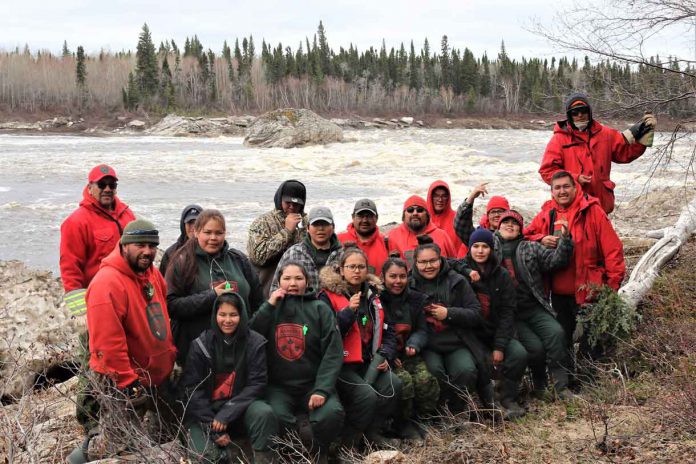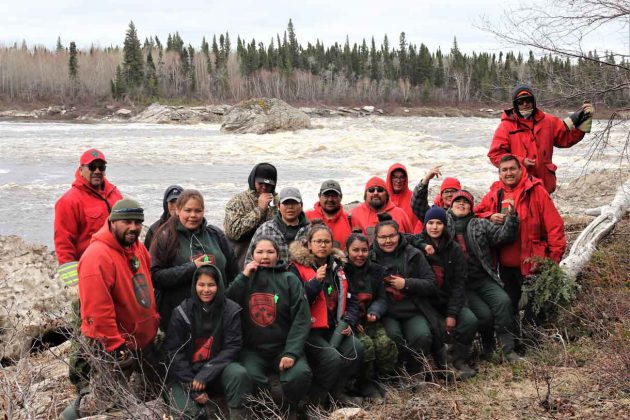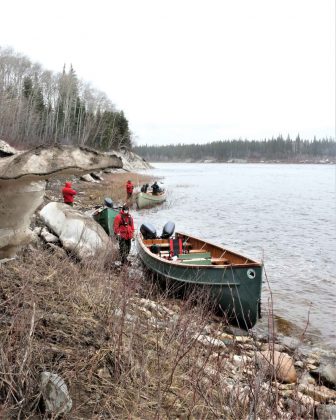By Peter Moon
ATTAWAPISKAT – A group of Junior Canadian Rangers from an isolated First Nation have completed an on the land trip during which they learned about their culture and how to do without their electronic devices for several days.
Photos by Judy Linklater-Sutherland
“It was an opportunity for them to learn about Cree culture and traditional teachings,” said Master Corporal Adrian Sutherland, a member of the Attawapiskat Canadian Ranger patrol. “It was also an opportunity for them to detach themselves from social media and their electronic devices and get back to more simple things, like socializing and interfacing with each other.”
The training exercise was organized by Master Corporal Christopher Kataquapit with the help of other Canadian Rangers and community volunteers and with the financial backing and support of the Band Council. Attawapiskat is near the James Bay coast.
The Junior Rangers is a culturally appropriate Canadian Army program for boys and girls aged 12 to 18 in remote and isolated communities across the Canadian North.
Canadian Rangers, who are part-time army reservists, Junior Rangers, and civilian volunteers travelled by freighter canoe to Bear Island on the Attawapiskat River where they camped for three nights.
They set nets in the river to catch fish, ate bannock, moose and caribou, built a tipi, and held regular sharing circles where the Junior Rangers were encouraged to talk and laugh.
“It was fun,” said Ciarra Nakogee, a 16-year-old Junior Ranger. “The kids at the camp, we barely talked to each other before we went. But the camp brought us together and we’ve made friends. We put our minds together and talked and connected and shared ideas. We ate mostly wild food and it was fun every day going out to check the nets for fish.”
The Cree have six seasons in their calendar, said Master Corporal Kataquapit. They add one called Blooming of the Earth between Spring and Summer, and a Freeze-up season between Fall and Winter. The exercise was intended to teach the Junior Rangers the traditional significance of the Blooming of the Earth season. They also learned how to preserve food from hunting and the importance of being part of the land in order to survive.
They learned how to operate a freighter canoe safely and visited a series of rapids to learn how to operate a boat in fast water. They also learned how to travel safely on the shore where there were still large chunks of ice from the spring break-up. “We tried to teach the kids to be safe and self sufficient,” Master Corporal Kataquapit said.
The exercise was so successful, he said, he would like to do another one during the Freeze-up season.




